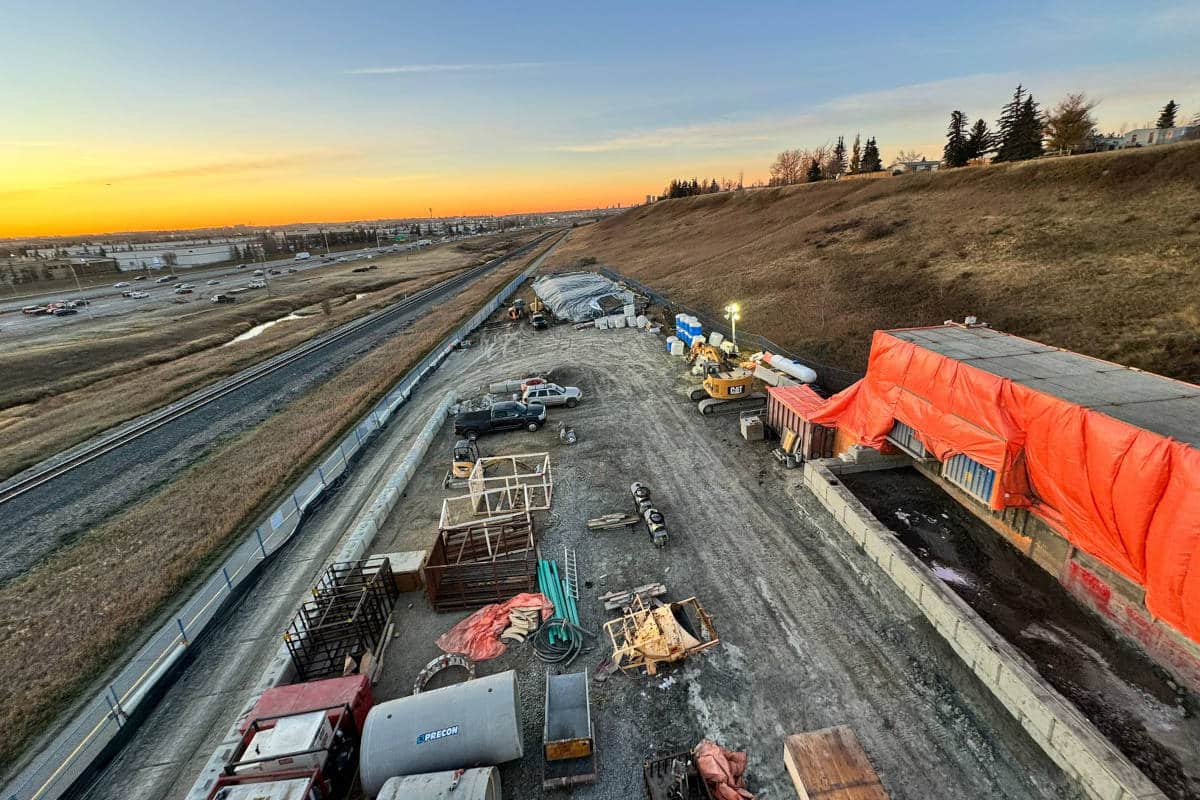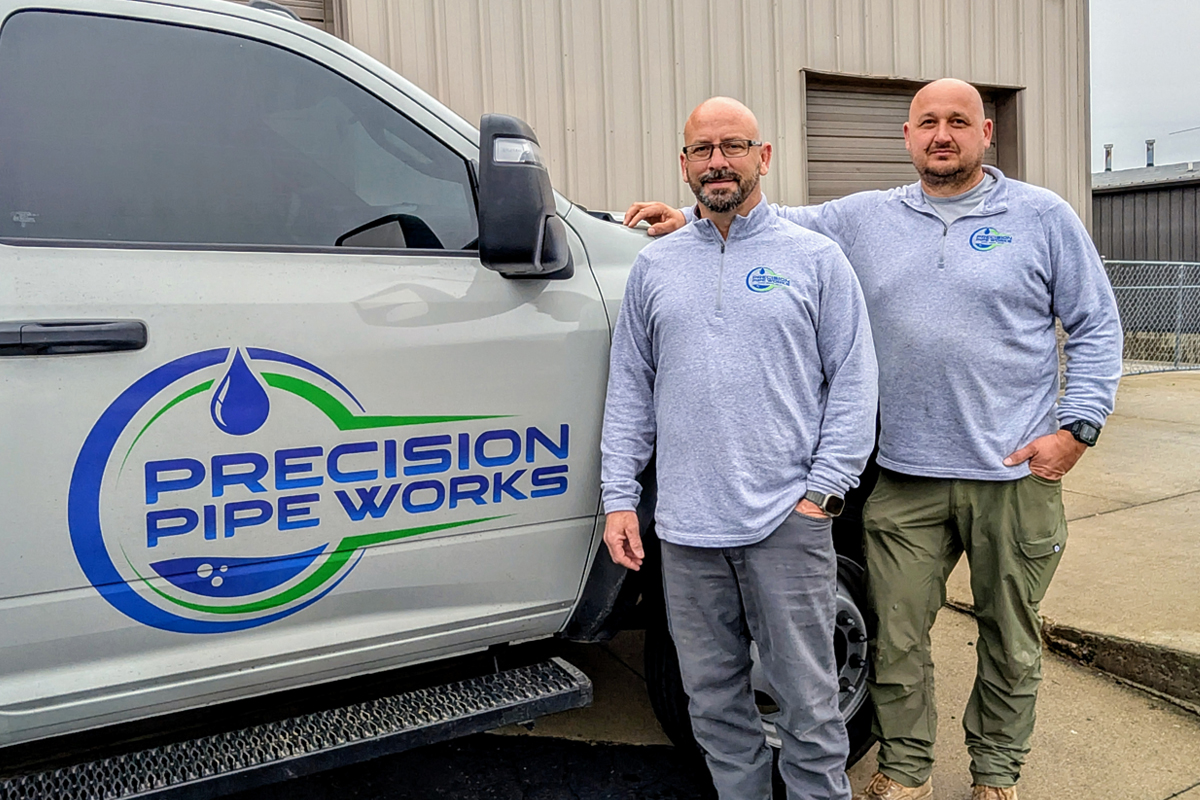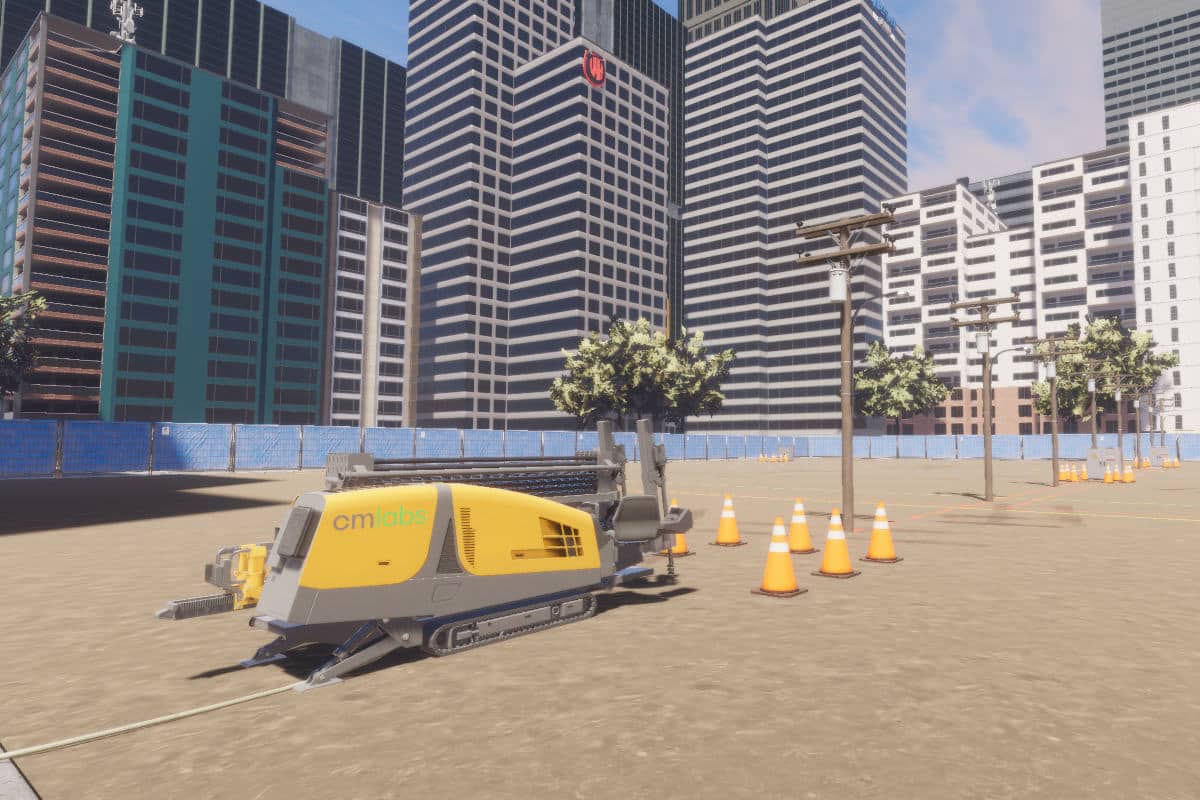Making Trenchless Its No. 1 Goal
December 1, 2007
 To thrive in any business (or sport), you must be persistent and have a goal in mind. For civil engineer (and avid hockey fan), Piero Salvo, president of WSA Trenchless Consultants, his drive was to create a successful company that had trenchless as its #1 objective.
To thrive in any business (or sport), you must be persistent and have a goal in mind. For civil engineer (and avid hockey fan), Piero Salvo, president of WSA Trenchless Consultants, his drive was to create a successful company that had trenchless as its #1 objective. Beginning as an engineer in a consulting firm and then becoming the boss of his own, has been Salvo’s personal success story —10 years in the making. However, Salvo recalls the first years of his journey of creating his own business and the obstacles he faced.
“After 10 years in the business, I can say that the first couple of years were the most trying and nerve-racking,” says Salvo. “Looking back, I remember having to start from scratch, spending half my time traveling back and forth to England, coming from being a civil contractor and only having briefly worked in a consulting firm — the first year and a half of business did not appear to have any of the ingredients for success.”
By packaging teamwork, expertise and drive together, Salvo was able to use a valuable lesson he learned years before, when he first took to the hockey rink as a goalie, to mold his business after.
“Since the age of 10, when I decided to join a hockey team, I realized how important the concept of teamwork was to success,” says Salvo. “We won as a team and we lost as a team. The approach to my business and personal life is the same. I can’t do it on my own, hence the team approach with my colleagues. The importance of teamwork is paramount to the success of any organization.”
Now 10 years later and numerous projects under his belt, Salvo can look back at the experience to observe and celebrate the success he and his team have found as engineering consultants in the trenchless market.
An Early Calling
The humble beginnings of WSA Trenchless Consultants start with Salvo, who at an early age knew he wanted to work in construction in some capacity. Following in the footsteps of his father, Pietro, who worked in the business, Salvo learned about the industry through going to jobsites and experiencing the work firsthand with his dad.
“I distinctly remember my summers being filled with great excitement, because I was going to work with my father,” says Salvo. “Even today, my mother, Antonina, reminds me of how I used to wake up, get dressed and be ready to go to work before dad even got out of bed.
“My father’s work ethic and dedication to our family and his business made me want to follow in his footsteps, and I hope that one day my son, Peter Nicholas, sees me as I see my dad,” explains Salvo. “I knew at a young age that I wanted to pursue a career in civil engineering and one day either run the family business or have my own consulting firm.”
Once Salvo had the desire to become an engineer, all he needed was the training. In 1988, Salvo obtained a bachelor’s degree in civil engineering from Concordia University in Montreal. He went on to receive his masters of engineering in 1991, also from Concordia. After graduation, Salvo went to work for a consulting firm in Montreal.
 Bit by the Trenchless Bug
Bit by the Trenchless BugSalvo first got a taste of the trenchless industry when he attended a No-Dig Show in Dallas in 1994. From there, he was intrigued by the various methods and technologies that were offered. Salvo connected with industry professionals and got his foot in the door to becoming a fixture in the business.
“The contacts I made at that first No-Dig were instrumental in allowing me to understand the industry and the potential that was there for the application of trenchless technologies in both the potable and wastewater industry,” explains Salvo.
The trenchless rehabilitation process was of special interest to Salvo, for both the ability to repair structures and the capability to do so with minimal disturbance to the surrounding public.
“I find that when a rehabilitation option is presented and deemed feasible, the owners want to proceed in order to reduce the impact to the homeowners or the businesses that will be affected by the work,” says Salvo. “The social impacts can be enormous and in many cases are not even considered. I believe that this trend is changing and less intrusive methods are being seriously considered and in some cases, obliged by the system owners.”
Then in 1996, Salvo met Ian Warren of Warren Associates, a consulting firm in the United Kingdom, who was involved in the trenchless rehabilitation market. After seeing the amount of rehab projects that were being completed in the United Kingdom, Salvo began to inquire more and more about available technologies for the potable watermain market and ways he could incorporate them into his own work, as a contractor at the time. With his childhood desire to be a consultant and an interest in rehab techniques, Salvo began learning about the technologies and planning out his own business.
“I felt that if I were to go into the consulting business, I would need to know about all the possible methods available. My clients would benefit from my knowledge in selecting the proper rehabilitation method for their project.”
WSA Consultants was incorporated in June 1997 and began work in Montreal. However, a couple changes came the following year — the company assumed a new headquarters in Ottawa, after recognizing the demand for work there, but did keep the Montreal branch active. WSA also officially changed its name to WSA Trenchless Consultants to reflect that it was not just a regular civil engineering consulting firm, but a specialized trenchless consulting firm.
The company set out to provide design services, site supervision, onsite quality control, project management, contract administration and training to its clients.
Standing Out from the Rest
Salvo does not boast that the first years of WSA were easy, but he does, however, stake success in the individualism of WSA and the expertise of its employees.
To separate itself from other consulting firms, WSA focused its sights on the trenchless rehabilitation market. Through centering projects on this concept, Salvo believes that WSA was able to find its niche in the industry.
“I believe we stand out as a consulting firm, because we are strictly a trenchless rehabilitation consultant and we are also a relatively small firm with a total of four employees — two of them in Ottawa and two in Montreal, which I believe is about to increase next year,” says Salvo.
WSA’s emphasis on potable water systems has also boosted its creditability and availability of services to clients.
“Another major difference we find with ourselves and other consulting firms is that most of our work to date —about 70 percent — has been on potable water systems,” says Salvo. “We have noticed that the potable watermain industry seems forgotten, but it is now growing at a faster pace.”
Experience is also one of the qualities that allows WSA to stand out from competing firms. Salvo says that the company’s and its employees’ past projects and personal background are a great selling point for the services they offer — allowing WSA to be marketable to a range of clients.
“We are able to tell our clients that we have a researched a product or we have already been involved in a similar project,” says Salvo. “This gives our client a level of comfort when dealing with a new technology. At the end of the day, it is about experience and we have that experience.”
Besides the number of projects completed, WSA’s employees can also boast that their extensive personal knowledge and field experience is valuable to their clients and work. Salvo has been in the construction business for nearly 20 years and Bert Alberty, WSA senior project manager, has more than 40 years of experience in the construction industry.
Staying Ahead
To make sure his company is offering the latest and greatest in rehabilitation, Salvo works hard to learn about the newest methods, products and technologies in the business and uses careful judgment before implementing them.
“Ever since learning about trenchless technology, I have personally challenged myself to find any new technologies that exist in the market,” says Salvo. “If there is something new, I make it a point to get as much information as possible before presenting it to my clients.”
By traveling to trade shows and overseas to Europe, Salvo seeks out these new technologies by testing them and seeing them work right before his eyes.
“I’m going to go and see the new product or technology, instead of reading up on it. I have to get up and go see it, because if I don’t go out there and touch it I won’t believe it,” says Salvo.
 Teaching Trenchless
Teaching Trenchless After WSA opened its doors in 1997, Salvo began offering training courses and workshops dealing with rehabilitation techniques. These courses were offered in Canada and the United States and would span from one to three days. Salvo believes that these classes were able to further the knowledge and understanding of using trenchless methods for rehab projects — in an attempt to promote the use of those methods.
“At the onset, we felt that by presenting the available watermain rehabilitation technologies to the clients, they would start thinking where they might have a project to use these technologies,” explains Salvo.
The courses covered topics on the technologies available for watermain rehabilitation, as well as inspector training, when using trenchless technologies, says Salvo. Today, the courses are offered at the request of clients and can be designed to fit their individual needs.
Promoting the Industry
In 1996, even before WSA was created, Salvo was invited by a colleague to attend a meeting for the Great Lakes and St. Lawrence Chapter (GLSL) of NASTT, a non-profit society for the promotion of trenchless technology. From there on, he became a member of the group, wanting to be a part of an organization that believed in the use of trenchless and in educating the public about it. Then in 1998, Salvo became a chairperson of the GLSL, where he was able to attend numerous functions pertaining to the industry. After a few years, Salvo was asked to become a board member of NASTT. The new membership gave Salvo and WSA the ability to network with industry professionals.
“Our involvement in NASTT has allowed all of our employees to network with clients and suppliers at the
various No-Dig events held throughout the years,” says Salvo. “By keeping contact with our NASTT and ISTT peers over the years, we have been able to discuss market trends in various parts of North America and elsewhere.”
In 2007, Salvo became the first Canadian-born chairman of NASTT, an experience that has made a great impact on him.
“This had to be one of the most rewarding experiences in my life, it is very humbling to be accepted in such a capacity by your peers. “For me, to be around all these people — engineers, educators, suppliers, manufacturers, contractors — with all their expertise, it’s a great experience.”
Pam Stask is assistant editor of Trenchless Technology.




